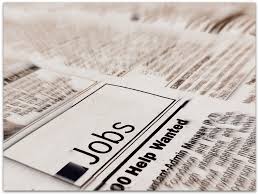There are debtors who feel filing
bankruptcy may not be necessary when they are unemployed. But as time goes by, you
have been unable to repay debt obligations or you have no assets for creditors
to seize. When you gain employment again you may start thinking about
your finances with intentions of getting back on track. This includes
protecting assets such as income you’ll start earning at your new
job. Just because you recently started working doesn’t mean creditors
won’t pursue you for payment.
Studies have shown that people who become newly employed are more likely
to file for protection. Many who are unemployed may not have the urgency
if they don’t have assets to protect or income creditors can tap into.
Bankruptcy offers protection to debtors. You can file either chapter depending
on qualifications.
Chapter 7 bankruptcy can eliminate or discharge unsecured debt obligations such as
medical bills and credit card debt.
Chapter 13 bankruptcy is a structured repayment plan approved by the court. Payments are made
based on income ability with plans lasting on average 3 to 5 years.
Both chapters allow debtors to keep assets and protect them from creditors.
Chapter 13 is ideal for debtors wanting to catch up on mortgage payments
while preventing foreclosure. You can also file Chapter 13 to help you
make missed payments on your vehicle. The
automatic stay is a legal junction that protects debtors from ongoing collection attempts
from creditors. This means you can prevent wage garnishment,
repossession, and
foreclosure when you act in a timely manner. Discuss your situation with an experienced
bankruptcy attorney.
